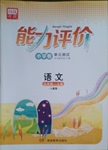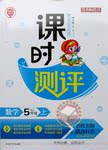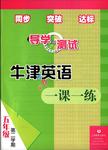
E
When an ant dies, other ants take it out of the nest, often within an hour after its death. This behavior interests scientists and they wonder how ants know for sure—and so soon—that another ant is dead.
One scientist recently came up with a way to explain this ant behaviour. Dong-Hwan Choe is a biologist, a scientist who studies animals and plants. He found that ants have a chemical on the outside of their bodies that signals to other ants, “I'm dead—take me away” when it is dead.
But there's a question to answer: As we know, if an ant is dead, it stops moving. But when an ant is sleeping or knocked unconscious, it is also not moving. However, other ants don't move the living ant out of the nest. How do they know this ant is not dead? Choe found that ants have another chemical on their bodies, which tells nearby ants something like , “Wait—I'm not dead yet”when
, “Wait—I'm not dead yet”when  it is not dead. Choe suspects that when an ant dies, the chemical that says, “Wait I'm not dead yet”quickly goes away. When other ants detect the“dead”chemical without the“not dead yet”chemical, they move away the body.
it is not dead. Choe suspects that when an ant dies, the chemical that says, “Wait I'm not dead yet”quickly goes away. When other ants detect the“dead”chemical without the“not dead yet”chemical, they move away the body.
To test his theory , Choe and his team put different chemicals on ants. When the scientists used the “I'm dead” chemical, other ants quickly moved the treated ant away. When the scientists used the“Wait—I'm not dead yet”chemical, other ants left the treated ant alone. Choe believes this behavior shows that the“not dead yet”chemical overrides the“dead” chemical when picked up by other ants. And that when an ant dies, the “not dead yet” chemical fades away. Other nearby ants then detect the remaining“dead”chemical and remove the body from the nest.
Understanding this behavior can help scientists figure out how to stop ants  from invading new places and causing problems.
from invading new places and causing problems.
57. What is the function of the first paragraph?
A. Leading the following paragraphs.
B. Showing the main idea of the passage.
C. Introducing the background of the passage.
D. Giving a summary of the passage.
58. Which of the following has the closest meaning to the underlined word “overrides” in the fourth paragraph?
A.is weaker than B. is stronger than C. is better than D. is worse than
59. What can we learn from the passage?
A. Living ants can also be taken away when they are not moving.
B. When an ant dies, it can tell others using a certain chemical.
C. A living ant can pretend to be dead using a special chemical.
D. Ants often use chemicals to communicate with each other.
60. Which of the following descriptions about Dong-Hwan Choe is right?
A. Choe did this study in order to stop ants from invading new places.
B. Choe is a biologist who is only interested in animals, especially in ants.
Choe is a biologist who is only interested in animals, especially in ants.
C. Choe first came up with an idea to explain this ant behavior,and then did some tests to prove his theory.
D. Choe did the research on this ant behavior on his own
 能力评价系列答案
能力评价系列答案 唐印文化课时测评系列答案
唐印文化课时测评系列答案 导学与测试系列答案
导学与测试系列答案科目:高中英语 来源:福建省泉州市2010届高三下学期第一次质量检查 题型:阅读理解
E
When we Americans shop at the grocery stores today, we don’t seem to be surprised at the sight of strawberries in the winter or perfect tomatoes from Holland. In the space of a generation, we’ve become accustomed to eating food that’s never grown roots in local soil. In fact, most produce(农产品) grown in the United States travels an average of 1,500 miles before it gets sold.
Trucking, shipping and flying in food from around the country and the globe has a very bad effect on the environment and on public health. Take grapes for example. Every year, nearly 270 million pounds of grapes arrive in California, most of them shipped from Chile to the Port of Los Angeles. Their 5,900-mile journey in cargo ships and trucks gives off 7,000 tons of global warming pollution each year, and enough air pollution to cause dozens of asthma(哮喘) attacks and hundreds of missed school clays in California.
The way we eat has a great influence on the health of the planet. By choosing to eat lower on the food chain, and focusing on local and organic(有机的) produce, we can reduce global warming and air pollution, avoid poisonous chemicals, support local farmers and enjoy fresh, tasty food.
People are rediscovering the benefits of buying local food. How your food is grown, stored, transported, processed and cooked can all influence how it affects climate and the environment. Transportation-related influences are particularly important for imported foods. NRDC calculated the transportation influences of importing fresh produce and wine widely consumed in California. They directly compared the climate and air quality influenced by importing these foods instead of growing and consuming them in California. Their analysis shows that—all else being equal—locally grown foods are a better choice.
72. From the passage we can learn that most produce sold at the grocery stores in the US .
A. is grown by local farmers B. is from foreign countries
C. comes from far away D. is out of season
73. What would be the effect of transportation of foods?
A. It pollutes the foods during the transportation.
B. It makes the cost of the foods much higher.
C. It makes the foods less fresh and tasteless.
D. It causes air pollution and global warming.
74. Which of the following may have a bad effect on the health of the planet?
A. Eating higher on the food chain. B. Eating locally grown foods.
C. Eating more organic produce. D. Eating fresh and tasty foods.
75. The main purpose of the passage is .
A. to help the local farmers grow and sell their produce
B. to tell people that imported foods are less healthy
C. to warn people of the harmfulness of food transportation
D. to get local people to reject the imported foods
查看答案和解析>>
科目:高中英语 来源:重庆市万州二中09-10学年度高二下学期期中考试(英语) 题型:阅读理解
E
When most people think of tropical islands, lined with white sandy beaches and bright blue seas, it is often the Caribbean or South Pacific that comes to mind. But for Chinese tourists who want a taste of paradise on Earth there is new place to consider. Mauritius, an island lying off the southeast of Africa in the Indian Ocean, has just been added to China’s list of tourist destinations. Rich in history, natural beauty and culture, the island has been a popular destination for the world’s tourists for many years.
On December 15 a total of eight African countries were added to the list. The others are Tunisia, Tanzania, Ethiopia, Kenya, Zimbabwe, Zambia and the Seychelles.
The island has passed through the controlling hands of a number of European powers, including Dutch, French and British. In 1968, Mauritius won its independence.
At present, over half the population of Mauritius is Hindu and another fifth is Muslim (穆斯林). Both groups are descendants (后裔) from workers brought to the island from India by the British. Some Chinese were also brought over to work. There are also descendants of African slaves and Franco Mauritians, the original settlers of the island. One of the best things about the island is the food. There is a mouth watering mix of European, Chinese and Indian flavours and seafood is very popular. A typical Mauritian dinner might have Indian chicken curry, Chinese pork, British roast beef and French style vegetables. Boiled rice is served with just about everything. All that is washed down with a plentiful supply of local beer and rum (浪姆酒).
The pleasant tropical climate and scenery provide the perfect setting to enjoy everything. The sea is full of colorful life that lives around the coral reef (珊瑚礁). This makes Mauritius a wonderful place for swimming and diving. The large number of interesting fish means it is also an exciting place for those who like to go fishing.
( )72. Which group of the following topics is NOT discussed in the text?
A. Food and history. B. Scenery and population.
C. Location and sports. D. Natural resources and agriculture.
( )73. Which of the following is TRUE?
A. Mauritius has something similar to the Caribbean or South Pacific.
B. Mauritius has a history of less than 40 years.
C. Mauritius has been a popular destination for Chinese tourists for many years.
D. The main food in Mauritius is local beer and rum.
( )74. The underlined word "This" in the last paragraph refers to "______".
A. pleasant tropical climate B. beautiful scenery
C. the sea with colorful life D. the coral reef
( )75. The text is mainly written to_______.
A. attract more Chinese to travel to Mauritius.
B. introduce some information about Mauritius.
C. give some advice on how to visit Mauritius.
D. help the visitors understand more about Mauritius.
查看答案和解析>>
科目:高中英语 来源:江苏省宿迁市2010年高三英语模拟试卷[一] 题型:阅读理解
E
When New York City was not very big, there was a market on the East River. On market day all the farmers came there to sell their vegetable, butter and eggs, and fruit. They laughed and talked together, so no one could hear the river that ran beside them.
But Hans ,the butterman , sat without a smile. He sold pounds of butter from a table beside him. Many people said that his butter wasn’t the right weight. They said that his rolls of butter didn’t weigh as much as a pound.
Once the weighmaster came walking down the road. He was looking for people who did not sell the full weight. Someone told him, ”Watch Hans, the butterman.”
Hans had good eyes. He saw the weighmaster and quickly put the piece of gold into the first roll of butter, between the butter and its cover.
A captain was standing beside Hans’s table, and he had seen Hans put the piece of gold into the roll. He stood at Hans’s side when the weighmaster came up to him.
“Good morning,” said the weighmaster.
“Good morning,” said Hans. “I think that you are looking for farmers who trick the people of our town.
“I’m,” said the weighmaster. “Someone told me that your rolls of butter don’t weigh a full pound.”
“Oh yes, they do. Here, Weighmaster. Here is a roll of butter. Weigh it yourself,” said Hans.
Hans took the first roll of butter and gave it to the weighmaster.
The weighmaster took his scales and put the butter onto it. The roll weighed more than a pound.
“I’ve made a mistake,” said the weighmaster. “You are an honest man. There is enough butter in this roll.”
Then the captain stood in front of Hans’s table. “You are an honest man, so I want to buy some of your butter,” he said. Before Hans could speak, the captain picked up the roll of butter with the piece of gold in it. “I’ll take this one.”
Hans’s heart began beating more quickly. “No, not that one. I’ve sold that one to a friend of mine. Take another one.”
“No, I want this one,” said the captain.
“I won’t sell it to you. I told you that I’ve sold it to a friend,” said Hans.
“Don’t make me angry. The weighmaster weighed this roll. Give your friend another one.”
“But I want to give him this one,” said Hans, who was now very uncomfortable.
“I ask you, good Weighmaster,” said the captain angrily, “don’t I have the right to choose the piece of butter that I want? I will pay good money for it.”
“Of course you have the right, Captain,” said the weighmaster. “What are you afraid of, Hans? Aren’t all the rolls of butter alike? Perhaps I have to weigh all of them.”
What could Hans say? What could he do? He had to smile and sell the butter to the captain. The captain gave Hans three cents for the butter.
The captain and the weighmaster walked away together.
“You punished the thief,” said the weighmaster.
“No, he punished himself,” said the captain, smile.
1. When Hans saw the weighmaster, he .
A. stood up at once B. said hello to the weighmaster
C. put a piece of gold into a roll of butter quickly
D. gave the weighmaster a piece
2. After the weighmaster weighed the roll of butter that Hans gave, he .
A. thought Hans was an honest man
B. wanted to weigh all the other rolls of butter
C. wanted to buy a roll of butter from Hans
D. thought Hans was foolish
3. The captain wanted to buy butter from Hans .
A. because he knew Hans was an honest man
B. because he wanted to punish Hans
C. to get the piece of gold in the butter
D. because the butter weighed more than a pound
4. Hans didn't want to sell that roll of butter to the captain because .
A. he had sold it to someone else
B. he didn't like the captain
C. he didn't want to lose the piece of gold in it
D. it weighed more than a pound
查看答案和解析>>
科目:高中英语 来源:2013届福建省漳州市芗城中学高考模拟英语试卷(带解析) 题型:阅读理解
E
When I was growing up, 16 was always a magical age, a symbol of maturity, responsibility and of course more independence and freedom. I sat through the hours of Driver’s Ed classes eager to get out on the road. I couldn’t wait to get my driver’s license.
But it’s a different story for today’s teens. In January, the U.S. Department Transportation released 2012 data that showed only 30.7 percent of U.S. teens got their license at age 16, Twenty years before, that number was almost 45 percent.
There are numbers of reasons for the fall – off. The growing responsibilities like paying for insurance and high gas prices discourage teens from getting behind the wheel. Plus, many teens today are so busy with homework, endless hours of activities and part-time jobs, that finding the time for Driver’s Ed classes may be more difficult that ever.
In addition, many states have raised the driving age, or restricted when teens can drive and who they can have in the car. Parents may also be making their own personal restrictions until they feel their teens are responsible enough to drive safely.
Driving is part of the American culture, but it’s not the central focus like it was 25 years ago. They have so many other things to do now. One of the more interesting factors delaying teens driving might be the change of their social life. Today, teens need to look no further than Face book or other social networking sites to connect with their friends. There is simply less need, maybe less desire, to be able to grab the keys and go.
Michelle Wei got her license as a senior in high school because her digital social life made it easy no to drive. “If I couldn’t get a ride to see my friend who lives a town over,” the 19-year-old said, “I could talk on IM or Skype.”
Research has shown that these online relationships can lead to higher quality friendships, so it isn’t necessarily a bad thing. However, it’s important to find a balance. If old face-to-face friendships are good, why not drive to find them?
【小题1】We can infer from the first paragraph that .
| A.Driver’s Ed classes allowed teens to know what maturity was |
| B.getting a driving license at 16 was a must for American teens |
| C.16 was considered an age when one could get his driver’s license |
| D.teens could drive on the road without taking Driver’s Ed classes |
| A.Desire to drive on the road declines among American teens. |
| B.Getting a license costs much more than ever before. |
| C.Social networking sites are changing the life of American teens. |
| D.American teens are becoming more responsible than ever. |
| A.why American teens are crazy about digital social life |
| B.what social networking websites are bringing to American teens |
| C.to what degree the Internet is affecting the American car culture |
| D.what the Internet does to help teens to get a driving license |
| A.the Internet h as a bad effect on the teen’s social life |
| B.teens should keep a balance in choosing their lifestyle |
| C.actual contacts can be replaced by talking on line |
| D.face-to-face friendship is always the best choice |
查看答案和解析>>
湖北省互联网违法和不良信息举报平台 | 网上有害信息举报专区 | 电信诈骗举报专区 | 涉历史虚无主义有害信息举报专区 | 涉企侵权举报专区
违法和不良信息举报电话:027-86699610 举报邮箱:58377363@163.com